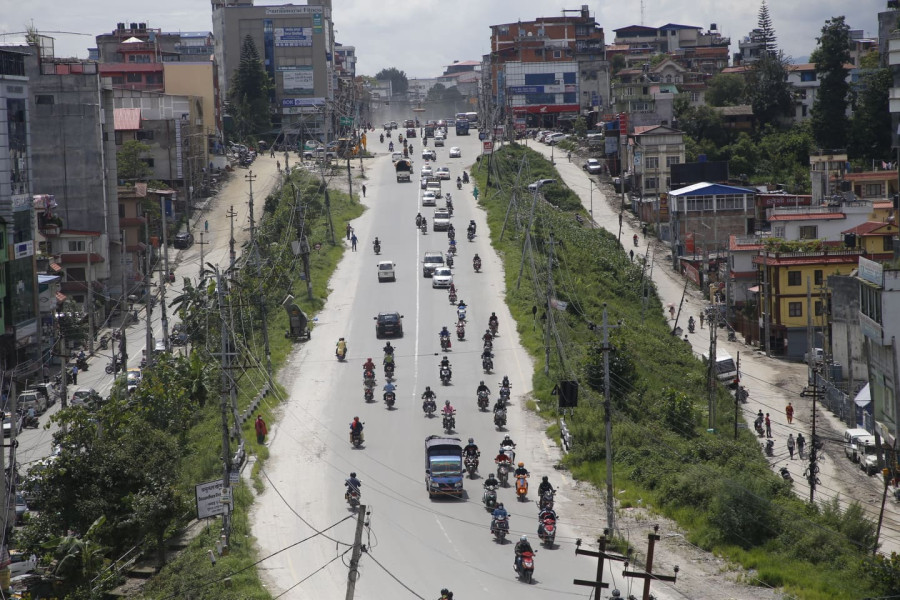Editorial
Drive safe
Authorities should educate the public on the hazards of drunk driving.
The Metropolitan Police Division on Wednesday said it was resuming drunk driving tests. Senior Superintendent of Police Bhim Prasad Dhakal claimed a safe distance would be maintained while doing such checks, adding that officers would not use breathalysers and instead observe the behaviour and attitude of motorists to determine whether the latter are intoxicated.
There is no questioning the effectiveness of drunk driving tests, as the country has seen a significant decrease in the number of incidents related to drunk driving in the past decade or so. So the intention of the division can't be faulted. Authorities seem to be keen to put the number of road fatalities under check now that the lockdown has been lifted. But good intentions must be accompanied by right action.
Public health experts have warned repeatedly that the Covid-19 threat is still quite high. The World Health Organisation has emphasised several times over in the past six months that the coronavirus transmits from one person to another through breathing and talking. The precautions officers take while ascertaining whether a driver is drunk may not be enough to stop the transmission. With over 18,000 positive cases and 42 deaths, the situation in Nepal is nowhere close to subsiding anytime soon. And with no curve in sight in the immediate future, there is no breathing a sigh of relief right now.
The biggest hindrance in the fight against the coronavirus the world over has been the authorities' failure to listen to public health experts. Nepal is no exception in this regard. Officials at the Covid-19 Crisis Management Centre have told the Post that the decision to lift the lockdown was taken without taking possible risk factors into account. Needless to say, authorities are following the same approach while resuming drunk driving tests as well.
In their attempt to avoid transmission, police authorities are arguably facilitating transmission thanks to their haphazard plans. As Dr Sher Bahadur Pun, a virologist at the Shukraraj Tropical and Infectious Disease Hospital, says, the decision to conduct drunk driving tests will put the lives of traffic officers and motorists at risk.
The division's decision to resume drunk driving tests at a time when cases of transmission are rising also shows how those at the higher echelons of power decide the fate of those at the lower rungs of the bureaucratic ladder without so much as consulting them. Rather than resuming an activity that puts its own personnel as well as the public at risk of transmission, the division should be looking for ways to minimise human contact and find alternative ways to control drunk driving.
The resumption of the tests also exposes the limitations of the rules related to driving under the influence. The moment the authorities stopped checking drunk driving due to the coronavirus pandemic, drivers began to take undue advantage of the lax rules by beginning to drive drunk again. Old habits die hard, as they say. If the attitude of the drivers about drunk driving has not changed after almost a decade, there seems to be a fundamental problem in the idea of imposing such a rule.
Apart from imposing strict rules on drunk driving, authorities should, therefore, focus on creating mass awareness about the hazards of drunk driving. Unless the drivers themselves come to understand—or are educated well enough—that drunk driving tests are for their own benefit than that of the authorities, the former will always find thief's ways to avoid being caught while driving drunk rather than take safe driving rules seriously.




 9.7°C Kathmandu
9.7°C Kathmandu














